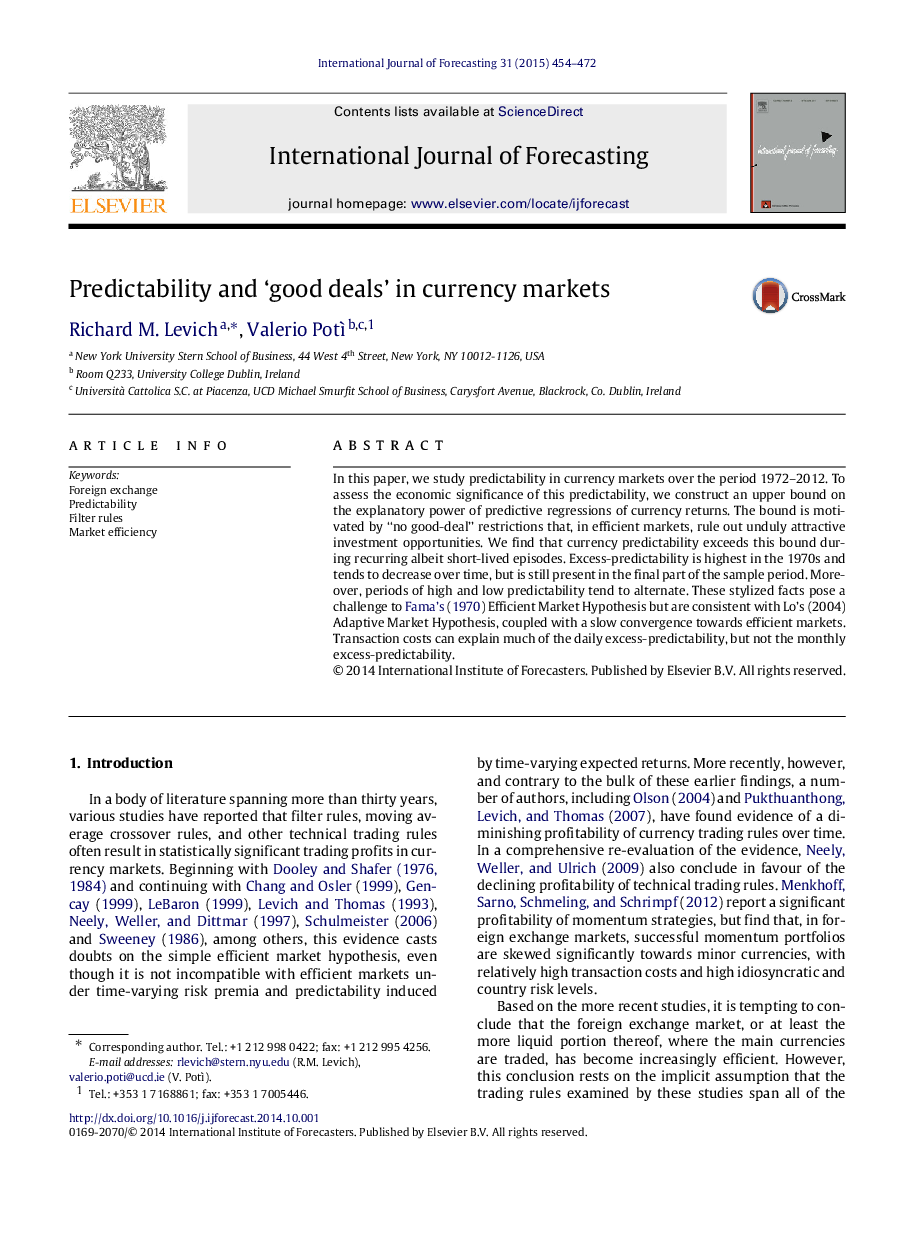| Article ID | Journal | Published Year | Pages | File Type |
|---|---|---|---|---|
| 7408442 | International Journal of Forecasting | 2015 | 19 Pages |
Abstract
In this paper, we study predictability in currency markets over the period 1972-2012. To assess the economic significance of this predictability, we construct an upper bound on the explanatory power of predictive regressions of currency returns. The bound is motivated by “no good-deal” restrictions that, in efficient markets, rule out unduly attractive investment opportunities. We find that currency predictability exceeds this bound during recurring albeit short-lived episodes. Excess-predictability is highest in the 1970s and tends to decrease over time, but is still present in the final part of the sample period. Moreover, periods of high and low predictability tend to alternate. These stylized facts pose a challenge to Fama's (1970) Efficient Market Hypothesis but are consistent with Lo's (2004) Adaptive Market Hypothesis, coupled with a slow convergence towards efficient markets. Transaction costs can explain much of the daily excess-predictability, but not the monthly excess-predictability.
Related Topics
Social Sciences and Humanities
Business, Management and Accounting
Business and International Management
Authors
Richard M. Levich, Valerio Potì,
